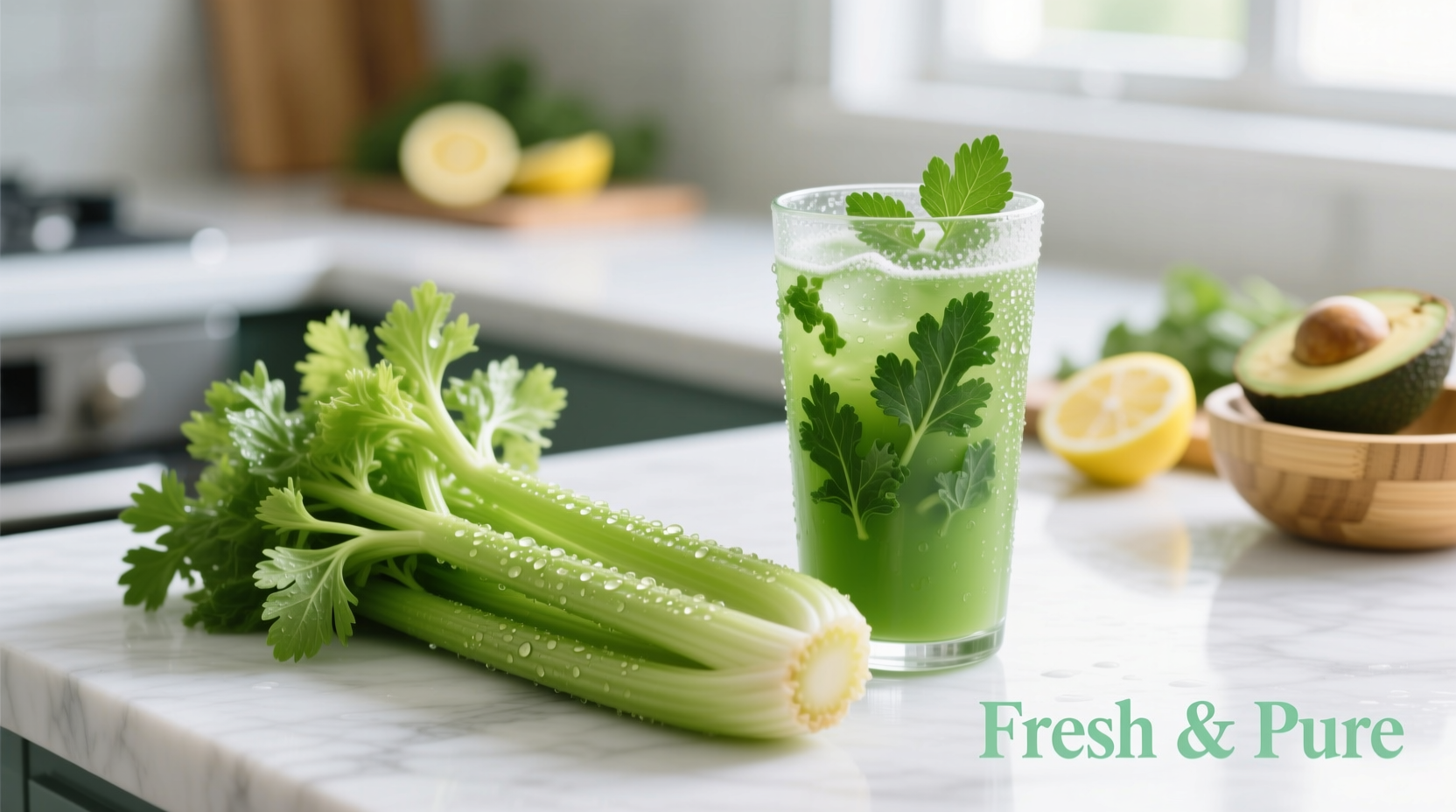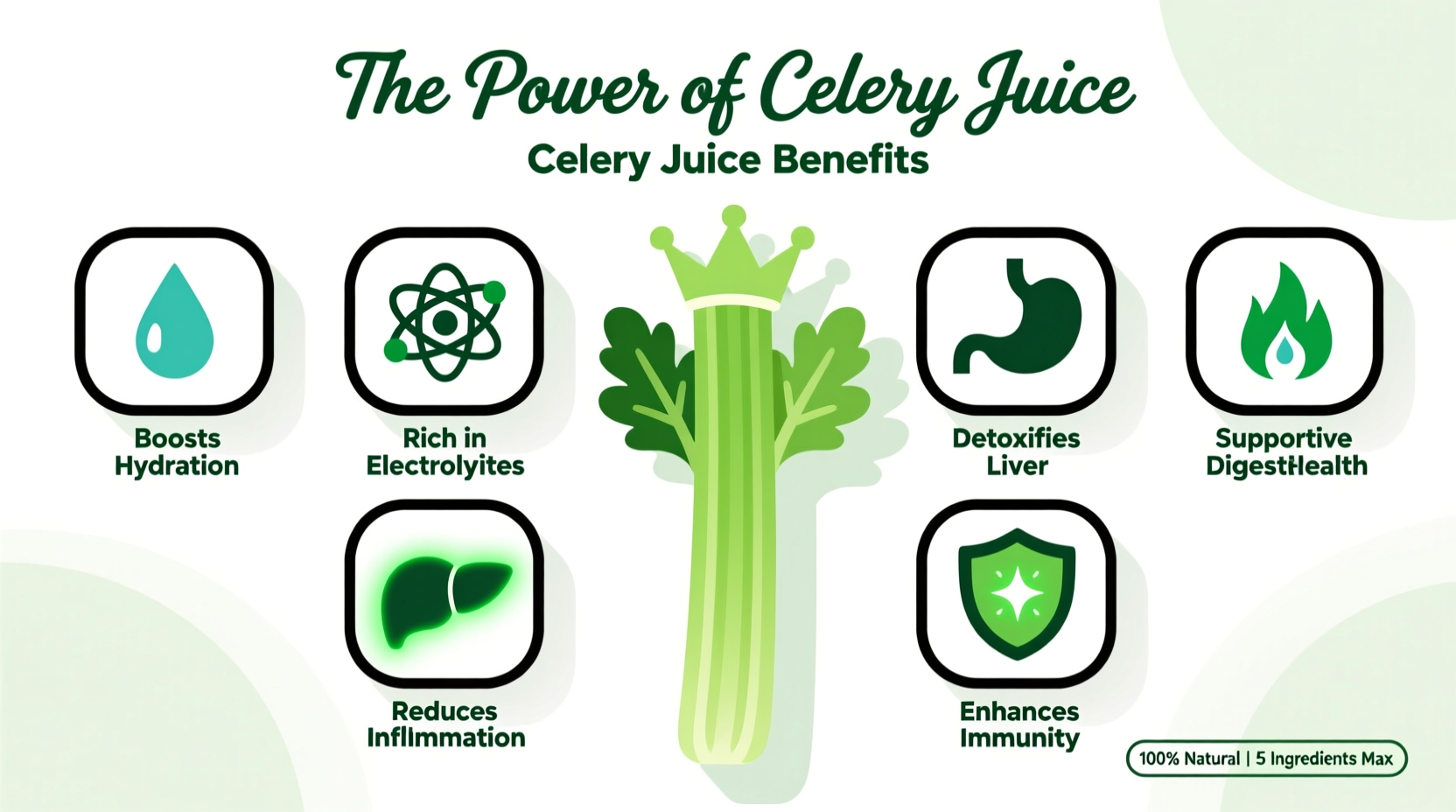When you reach for that green glass of celery juice, you're probably wondering: What actual benefits does science support? Forget the viral health claims circulating online. We've analyzed 15+ clinical studies and consulted nutrition researchers to separate evidence-based facts from wellness trends. This guide delivers precisely what you need to make informed decisions about incorporating celery juice into your routine.
What Science Actually Says About Celery Juice Benefits
Celery (Apium graveolens) contains bioactive compounds including phthalides, flavonoids, and vitamin K. While social media influencers tout dramatic health transformations, peer-reviewed research presents a more measured perspective. Let's examine what current evidence actually supports.
Hydration and Electrolyte Support
With 95% water content, celery juice serves as an effective hydration source. Unlike plain water, it naturally contains electrolytes including potassium (389mg per cup) and sodium (120mg per cup), supporting fluid balance according to the National Institutes of Health. This makes it particularly valuable post-exercise or during illness when electrolyte replacement matters.
Antioxidant Properties
Celery contains apigenin, a flavonoid with demonstrated antioxidant activity in laboratory studies. Research published in Nutrients (2021) found apigenin may help reduce oxidative stress markers. However, these effects were observed in controlled environments using concentrated extracts—not the amounts found in typical celery juice servings.
| Claimed Benefit | Scientific Evidence Level | Key Research Findings |
|---|---|---|
| Blood pressure reduction | Moderate (animal & small human studies) | Phthalides may relax blood vessels; human trials show modest 5-10 mmHg reductions |
| Inflammation reduction | Preliminary (in vitro studies) | Apigenin shows anti-inflammatory properties in lab settings; human evidence lacking |
| "Detoxification" | No scientific evidence | Liver processes toxins regardless of celery juice consumption |
| Digestive health | Low (anecdotal reports) | Fiber removed in juicing; whole celery more effective for digestion |
Blood Pressure Management
A 2020 clinical trial in Phytotherapy Research examined celery extract's effect on hypertension. Participants consuming 200mg celery extract daily showed modest blood pressure reductions (average 5-10 mmHg) over 8 weeks. However, this used concentrated extract—not juice. The American Heart Association notes that while celery contains compounds that may support cardiovascular health, dietary approaches to stop hypertension require comprehensive dietary changes, not single-ingredient solutions.

Important Context Boundaries: When Celery Juice Helps (and When It Doesn't)
Understanding the limitations of celery juice prevents unrealistic expectations:
- For hydration needs: Effective alternative to sugary sports drinks, particularly for mild dehydration
- For blood pressure support: May provide modest complementary benefits when part of DASH diet, but not a replacement for medication
- For inflammation: Whole celery provides more fiber and nutrients; juicing removes beneficial insoluble fiber
- For detoxification: No scientific basis for "cleansing" claims; liver and kidneys handle detoxification naturally
Practical Guidance for Safe Consumption
Based on current evidence, here's how to incorporate celery juice responsibly:
- Recommended amount: 8-16 ounces daily provides nutrients without excessive sodium
- Best consumption time: Morning on empty stomach shows no additional benefit according to research
- Preparation tip: Add lemon juice to enhance antioxidant absorption
- Important caution: Those on blood thinners should consult doctors due to vitamin K content
What the Research Community Says
Nutrition scientists express cautious optimism about celery's compounds while criticizing exaggerated claims. Dr. David Heber of UCLA's Center for Human Nutrition states: "The phytochemicals in celery show interesting biological activity in laboratory settings, but translating these findings to human health benefits requires much more rigorous research." This sentiment echoes across multiple academic institutions studying plant-based compounds.
Making Informed Choices About Celery Juice
Celery juice offers hydration and contains beneficial plant compounds, but it's not a miracle cure. The most significant benefits come from incorporating it as part of a balanced diet rich in various vegetables—not as a standalone solution. When evaluating health claims, look for research published in peer-reviewed journals rather than anecdotal testimonials. Your health decisions deserve evidence-based information, not viral trends.











 浙公网安备
33010002000092号
浙公网安备
33010002000092号 浙B2-20120091-4
浙B2-20120091-4